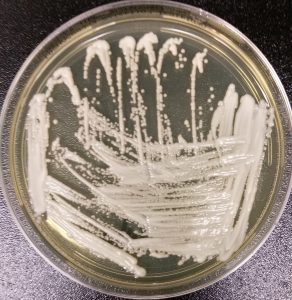The first cases of Candida auris (C. auris) have been identified in Southern California, according to the Los Angeles County Department of Public Health (LAC DPH).

According to health officials, the first cases of C. auris have been detected in multiple healthcare facilities in Southern California.
LAC DPH is working closely with state and local public health agencies to monitor the situation. While no cases have been identified in LA County, officials issued an advisory so that those who work in healthcare facilities can take actions now to identify patients with this infection and prepare for actions that may be required should your facility have a patient with this infection.
As of March 31, the CDC has reported 613 confirmed cases, primarily from the New York City area, New Jersey, and the Chicago area.
C. auris is an emerging multi-drug resistant Candida species that has caused invasive healthcare-associated infections and is associated with high mortality rates.
C. auris has been identified from many body sites including bloodstream, urine, respiratory tract, biliary fluid, wounds, and external ear canal. Almost 30% of patients with an invasive C. auris infection die. It can colonize patients for many months (even after treatment), persist in the environment, and withstand many routinely used disinfectants in healthcare facilities.
In the United States, C. auris infection has primarily been identified in people with serious underlying medical conditions who have received multiple antibiotics and who reside in or who have had prolonged admissions to healthcare settings (particularly high-acuity skilled nursing facilities).
- African swine fever in Asia: 1.1 million pigs culled
- Plague in Mongolia: Quarantine lifted; Is foodborne transmission possible?
- Zoonotic diseases in the US: Rabies, Lyme disease among eight of most concern
- California: Raw oysters linked to GI illnesses
- Brazil: 1st human rabies case reported in Santa Catarina in nearly 40 years
- Indiana University mumps tally rises to 31
- Germany: New bill could make it costly for parents that don’t vaccinate their kids


